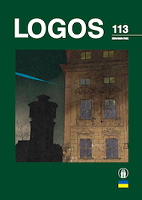Logical-Philosophical Reinterpretation of Retrospective Nature of AI Technology in the Modern Globalized World
Logical-Philosophical Reinterpretation of Retrospective Nature of AI Technology in the Modern Globalized World
Author(s): Yan KapranovSubject(s): Epistemology, Logic, Philosophy of Mind, Philosophy of Science
Published by: Visuomeninė organizacija »LOGOS«
Keywords: Intelligence; artificial intelligence; technology; retrospective; logical-philosophical reinterpretation;
Summary/Abstract: The article presents a logical-philosophical reinterpretation of the retrospective nature of artificial intelligence technology in the modern globalized world through the prism of the disclosure of each individual link of the triad. The origin, formation, and further development of the notion of "intelligence" can be traced within the framework of the link “historical retrospective of the evolution and development of the notion of “intelligence”, where we can talk about representatives of the genus Homo (from Homo Habilis, Homo Sapiens to Homo Sapiens Sapiens), whose thinking evolution took place due to the improvement of work tools at each separate stage. The link “philosophical conception of intelligence” made it possible to trace the difference between natural intelligence and artificial intelligence: if natural intelligence is connected with the spiritual world of a human being (Homo Sapiens), which is determined by its natural “substrate”, then artificial intelligence is related to the study of the tasks of the human mind intelligent, which are completely separate and related to the creation of systems of “machine” text recognition, its translation into different languages. The link “modern logical-philosophical reinterpretation of the retrospective of artificial intelligence” is the process of transferring natural reality (neural networks of a human being (Homo Sapiens) to artificial reality (neural networks of an artificial human being (Artificial Homo Sapiens). In addition, an attempt was made to present a hypothetical methodological algorithm of artificial intelligence engineering, which consists of three stages: if the first stage is aimed at describing each component of the triad “brain – thinking / cognitive abilities / consciousness – intelligence”, characteristic of Homo Sapiens, the second stage is aimed at analyzing the work of any robot for the presence of biological, semiotic and other systems in it, which are an imitation of “neural networks” and “mental models”, then the third stage is to simulate weak and strong intelligence.
Journal: LOGOS - A Journal of Religion, Philosophy, Comparative Cultural Studies and Art
- Issue Year: 2022
- Issue No: 113
- Page Range: 35-45
- Page Count: 11
- Language: English

